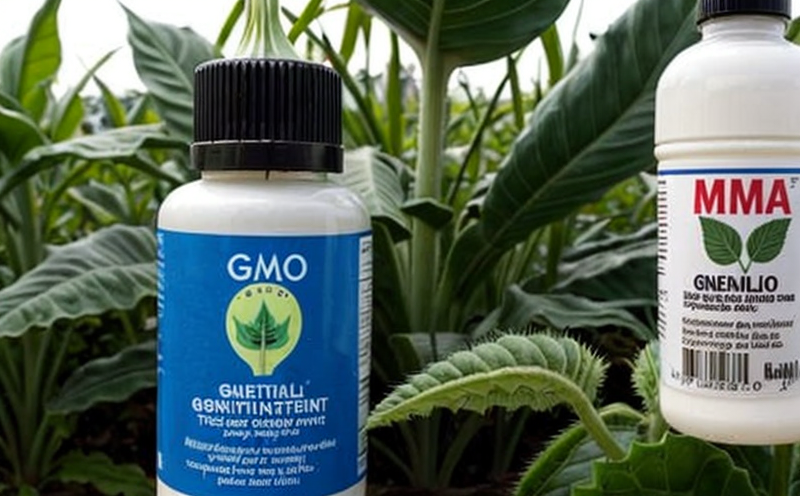ISO 21569 Qualitative DNA-Based PCR Screening for GMOs
The ISO 21569 standard outlines a qualitative DNA-based polymerase chain reaction (PCR) screening method designed to detect the presence or absence of genetically modified organisms (GMOs) in food and feed samples. This service is essential for ensuring compliance with international regulations regarding the labeling, traceability, and safety of GMO products.
The PCR technique leverages specific primer sequences that bind uniquely to known genetic markers associated with GMOs. By amplifying these target regions through repeated cycles of heating and cooling, the test can differentiate between conventional food items and those containing genetically modified ingredients. This method is highly sensitive and precise, allowing for accurate identification down to a single copy of DNA.
The process begins with sample collection, which may include raw materials used in production or finished goods ready for sale. Samples are then extracted using appropriate methods tailored to the type of food or feed being analyzed. The extraction step aims to liberate intact DNA from plant tissues, ensuring that no contaminants interfere with the subsequent PCR reaction.
Following extraction, the isolated DNA undergoes several preparatory steps before being subjected to PCR amplification. These include purification to remove unwanted compounds and quantification to ensure optimal concentrations for the reaction. Once prepared, the samples are ready for analysis using a real-time PCR machine equipped with appropriate reagents and software.
The actual testing involves setting up the PCR mix containing the extracted DNA along with the primers targeting specific GMO markers. After initialization, the mixture undergoes thermal cycling over multiple cycles until the target sequences are fully amplified. Real-time detection systems monitor fluorescence signals generated during each cycle, which increase exponentially if the desired sequence is present.
Upon completion of the PCR run, data analysis reveals whether any positive signals were detected indicative of GMO presence. If no signal appears, it indicates that the sample does not contain detectable amounts of genetically modified material according to ISO 21569 criteria.
This service plays a crucial role in maintaining transparency throughout supply chains by providing clear evidence regarding the origins and modifications made to agricultural products. It supports regulatory compliance efforts aimed at protecting public health while fostering innovation within biotechnology industries.
Applied Standards
| Standard Code | Description |
|---|---|
| ISO 21569:2014 | Qualitative DNA-based polymerase chain reaction (PCR) screening method for genetically modified organisms in food and feed products. |
Eurolab Advantages
Eurolab offers unparalleled expertise in implementing ISO 21569 compliant GMO testing services. Our team of qualified professionals ensures accurate and reliable results every time, adhering strictly to the prescribed protocols outlined by this international standard.
- We employ state-of-the-art equipment capable of delivering consistent performance across various sample types.
- Our highly trained staff members possess extensive knowledge about different genetic modifications employed in agricultural practices globally.
- EuroLab maintains strict quality assurance measures ensuring high levels of accuracy and precision throughout each step of the testing process.
By choosing Eurolab for your GMO testing needs, you can rest assured that all aspects of this crucial service are handled professionally and efficiently. Our commitment to excellence guarantees that you receive accurate data supporting informed decision-making processes within your organization.
Use Cases and Application Examples
- Supply Chain Verification: Companies involved in the sourcing of agricultural inputs can use this service to verify that their suppliers meet regulatory requirements regarding GMO content.
- Product Development: Researchers working on new crop varieties often need to ensure that their creations do not inadvertently introduce prohibited genetic modifications. This testing helps them stay compliant with relevant regulations.
- Consumer Protection: Retailers and manufacturers must guarantee that labels accurately reflect the GMO status of their products. Regular testing ensures compliance with labeling laws protecting consumers' rights.
- Research Institutions: Academic institutions studying genetic modification effects on ecosystems benefit from precise identification tools provided by this service.





